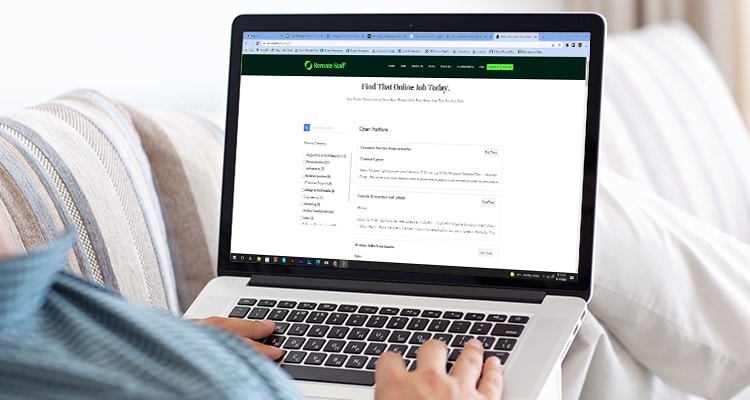Perhaps one of the most crucial decisions you will likely make for your career is resigning from your current job. Doing so means losing your source of income, which obviously isn’t good these days. However, resigning can also lead to more opportunities for growth, improve your physical and mental health, and get better benefits due to the ongoing talent war.
That said, resigning isn’t as simple as walking up to your boss and saying: “I’m out. Peace.” There is a process that you need to go through, so you can resign without any issues. In that case, what is this process, and how do you do it?
To answer these questions, here is a step-by-step guide on what you should do when resigning from your job without issues. In addition to this, I will also talk about what should your next steps be after leaving your company.

Think About Your Decision Carefully.
Before you even think about sending your resignation letter to your boss, think about your decision first. Times are tough right now. And having a job, no matter how simple or low-paying it may be, is a godsend. In contrast, leaving your job right now without an offer from a different company runs the risk of you being jobless for a long, LONG while.
With this in mind, reflect on your reasons for resigning and consider whether or not they’re worth leaving the company for. If possible, consider negotiating with your current boss first. With how difficult it is to get experienced and skilled employees right now, they may be open to improving your salary or benefits to keep you.
But if it’s something more personal, say, you’re suffering from exhaustion due to the workload. Or perhaps you have a toxic work environment. In these cases, I think it’s really time to say goodbye.

Review Your Company’s Resignation Rules.
Once you’ve decided you’re pushing through with your resignation, it’s time to review your company’s resignation rules, particularly the expected notice period. Even though the standard notice period is two weeks, some companies may expect you to send a much earlier notice. Aside from being a requirement, doing this is also a form of professional courtesy to your boss.
In addition, be sure to check whether the company you’re going to work for isn’t a competitor to your current company. Do note that working for a competitor of your previous company is considered unethical. So if you want to maintain your reputation and avoid legal issues, make sure the company you’re shifting to isn’t competing with your former company.

Construct Your Letter of Resignation.
After sending your notice, it’s time to send your letter of resignation to your employer. This formal letter is essentially a summary of your intention to resign from the company. It contains your reasons for leaving, when you’ll leave the company, and your appreciation for your employer.
When writing your resignation letter, always remember to keep your letter as concise as possible to save time for you and your employer. Be sure to also send your letter ahead of time and remain polite and amicable in your tone to avoid any issues.
Aside from this, avoid making any promises to your employer during your notice period. This is so that they don’t form any unnecessary expectations from you. Be sure not to include any negative experiences you may have had while working in the company. Again, this is so you don’t have to deal with anymore trouble before you leave the company.

Request a Character Reference From Your Immediate Supervisors.
Another thing that you shouldn’t forget to request from your boss before leaving is a character reference from them. A character reference improves your resume and helps increase your chances of getting hired.
Unfortunately, because you’ll be busy with your resignation, it’s easy to forget to ask your boss for your reference. That is why it’s best to ask for this in advance, preferably when you send your resignation letter. Doing this also gives your boss a heads up on your intentions and helps them prepare their response.

Leave No Loose Ends.
Just because you’ve submitted your resignation letter doesn’t mean you’re already free to go. You still have to finish all your leftover work during your last few weeks of work. And it would be unprofessional of you to leave them unfinished now, wouldn’t it?
If you’re planning to slack off from work since you’re leaving the company in a few weeks, you may want to reconsider that choice. Aside from being unprofessional, doing so may cause problems that may delay your leaving the company.

In Some Cases, You May Have to Do an Exit Interview.
Depending on your boss, you may also be required to do an exit interview just before you leave. Compared to the one you had during your application, this one is more of an evaluation of your experience. This evaluation helps the company improve itself and retain more employees in the future.
During your interview, be sure to discuss your reasons for leaving the company and offer some advice to avoid these from happening next time. Also, when talking about your experiences working in the company, highlight both the positives and negatives. You don’t want to sound like you’re ranting or ungrateful to your soon-to-be former boss now, would you?

Thank Your Boss and Co-workers for Everything.
Before leaving the company, don’t forget to say “thank you” to your boss and co-workers for all they’ve done for you. For better or for worse, they’ve helped shape who you are in the present through your experiences working with them. Besides, not all of them could be that bad, right? There must be a few of your co-workers you’ll miss when you leave.
So, once you accomplish all your requirements, why not say your thanks and goodbyes to them first? It doesn’t have to be anything fancy. A simple message in your group chat is more than enough. Particularly if you get along with most of your co-workers. If you want it to be more personal, you can try messaging them privately instead.

Now What?
Now that you’ve left your job, what’s next?

Look for a New Job… Online!
If you haven’t done so already, now’s the best time to start looking for a new job. And with the growing popularity of online jobs, why not try it out yourself?
If you don’t know where to start looking for a work from home job, don’t worry. Remote Staff has you covered. We will help you find the right partner and job best suited for your skills.

Take a Break From Work.
If your previous work proved to be draining to you, both in body and mind, why not take a break first to rest up? Yes, I know the idea of resting may not be appealing for many, given today’s circumstances.
That said, overworking your body can also lead to long-term health problems. This is why working immediately after leaving a stressful job isn’t advised. That is why you should regain your strength first. So that you’ll be in your best shape when you apply for a job again.

Improve Your Resume.
And how can I forget this? If you want to have a better chance of applying for your next job, I suggest you use your downtime improving your resume. Here, you can update your resume with your accomplishments in your previous work.
Of course, improving your resume isn’t the only thing you can do during this time. You can try honing your skills and learn new ones as well.

Bid Adieu the Right Way.
And we are done! Here is a step-by-step resignation guide that you should follow when leaving your current job and what to do afterward. I hope this helps you part ways with your boss and co-workers amicably.

